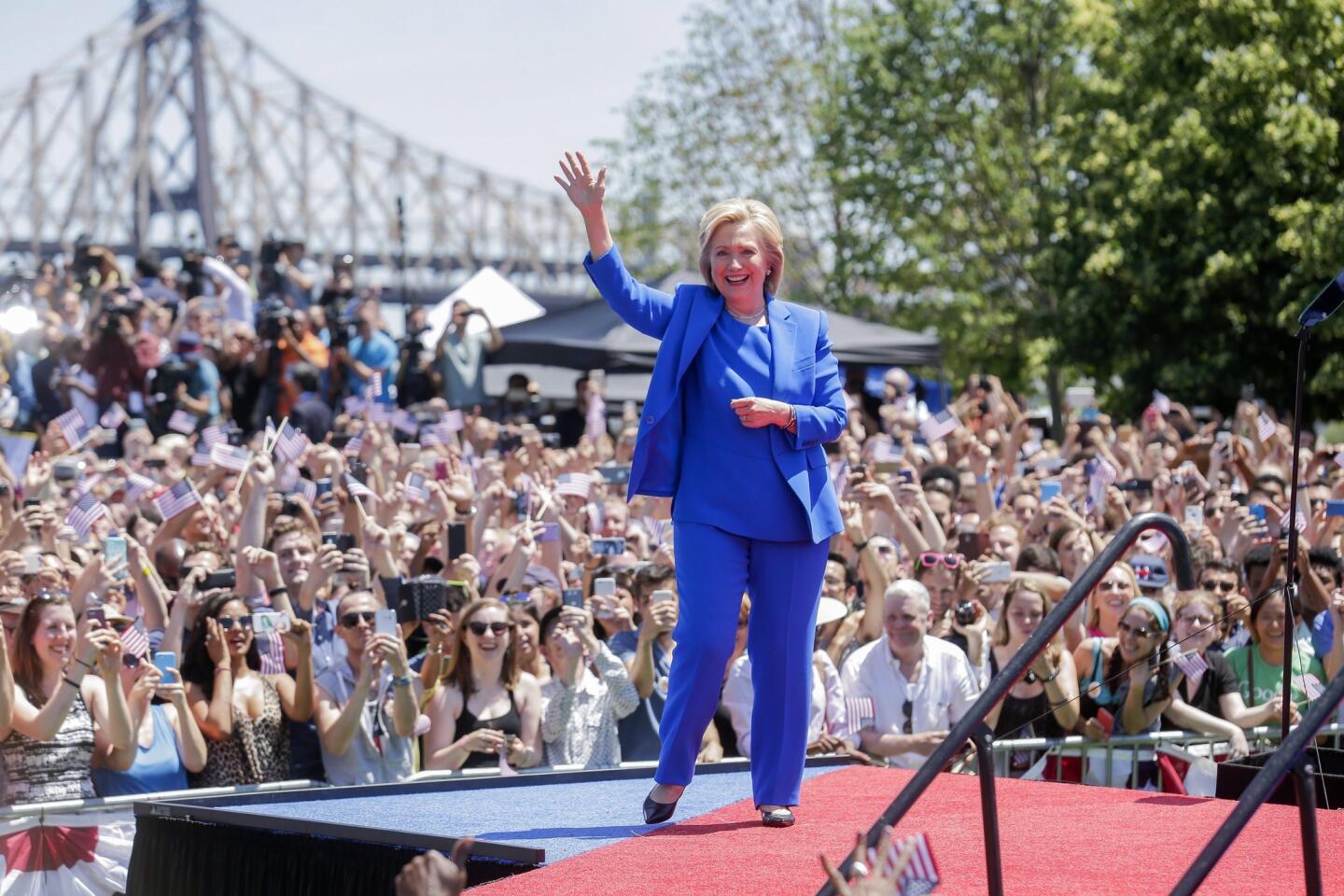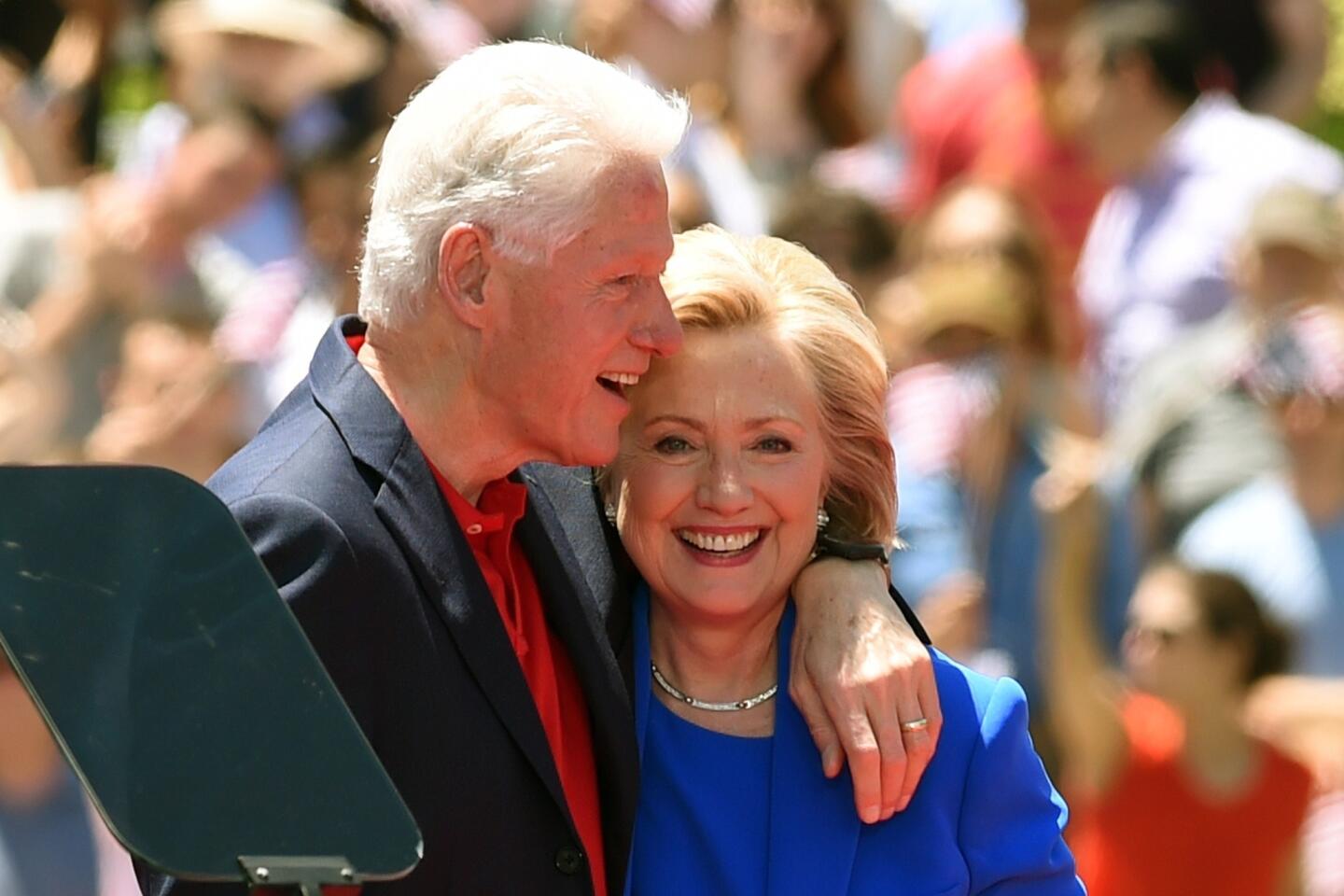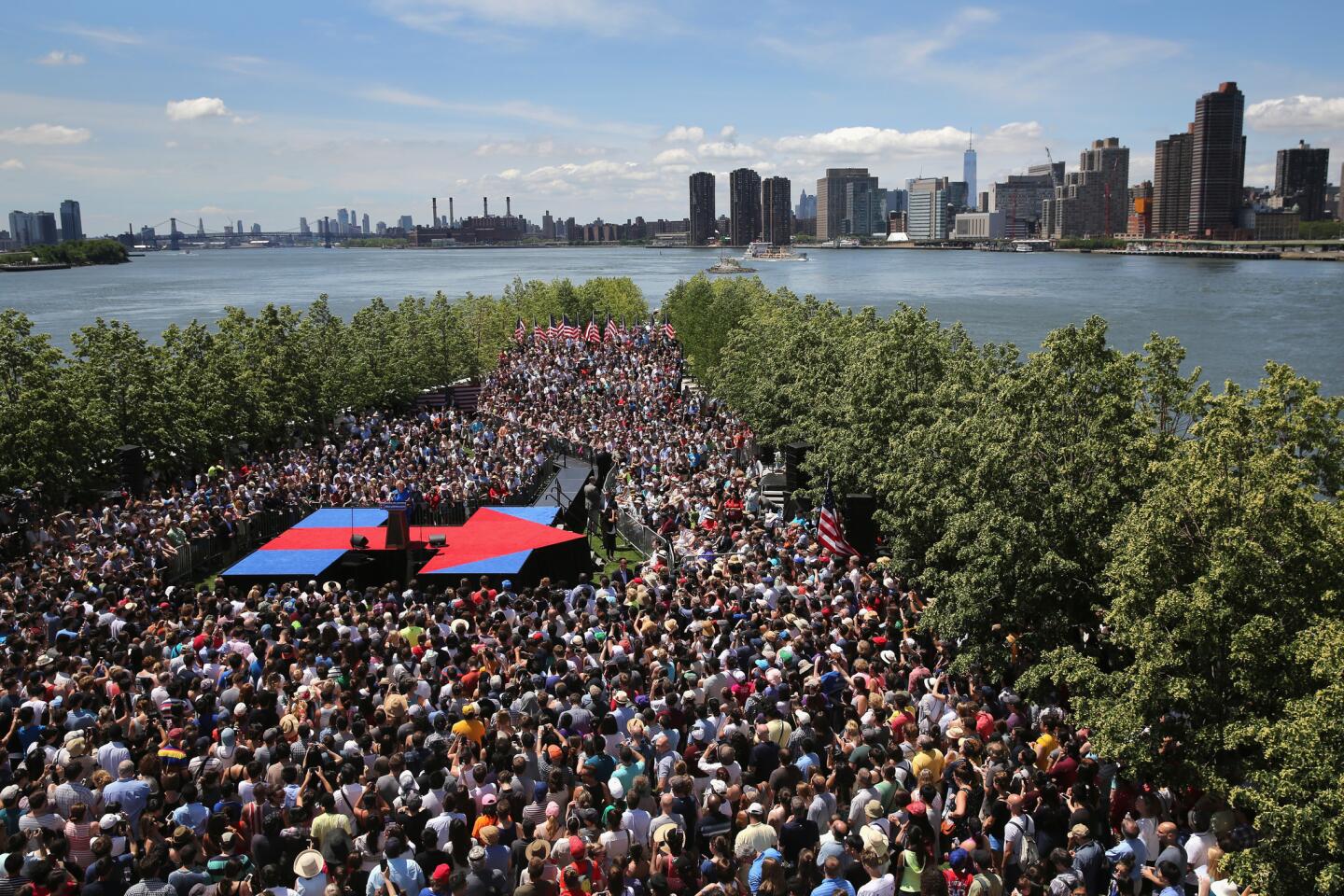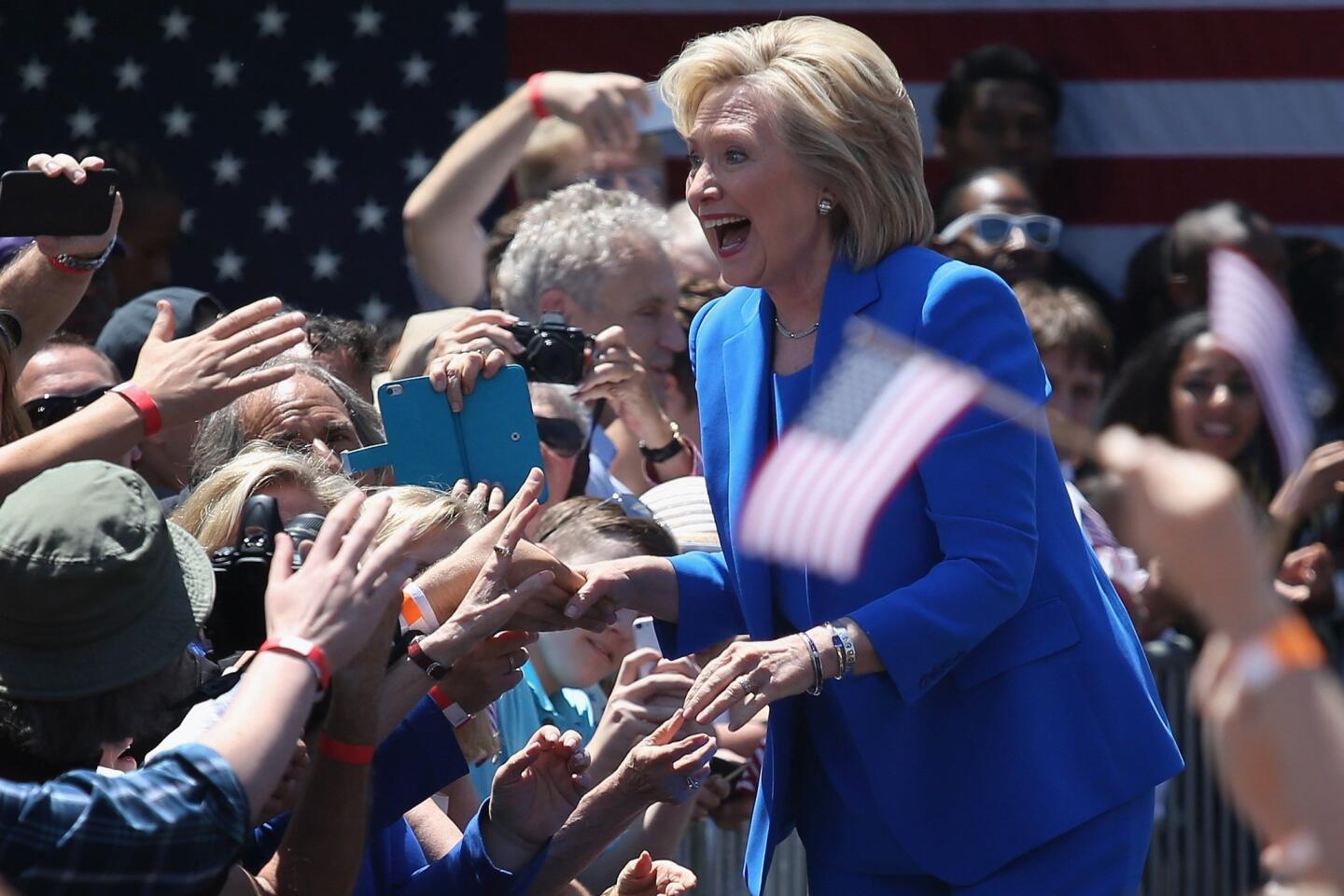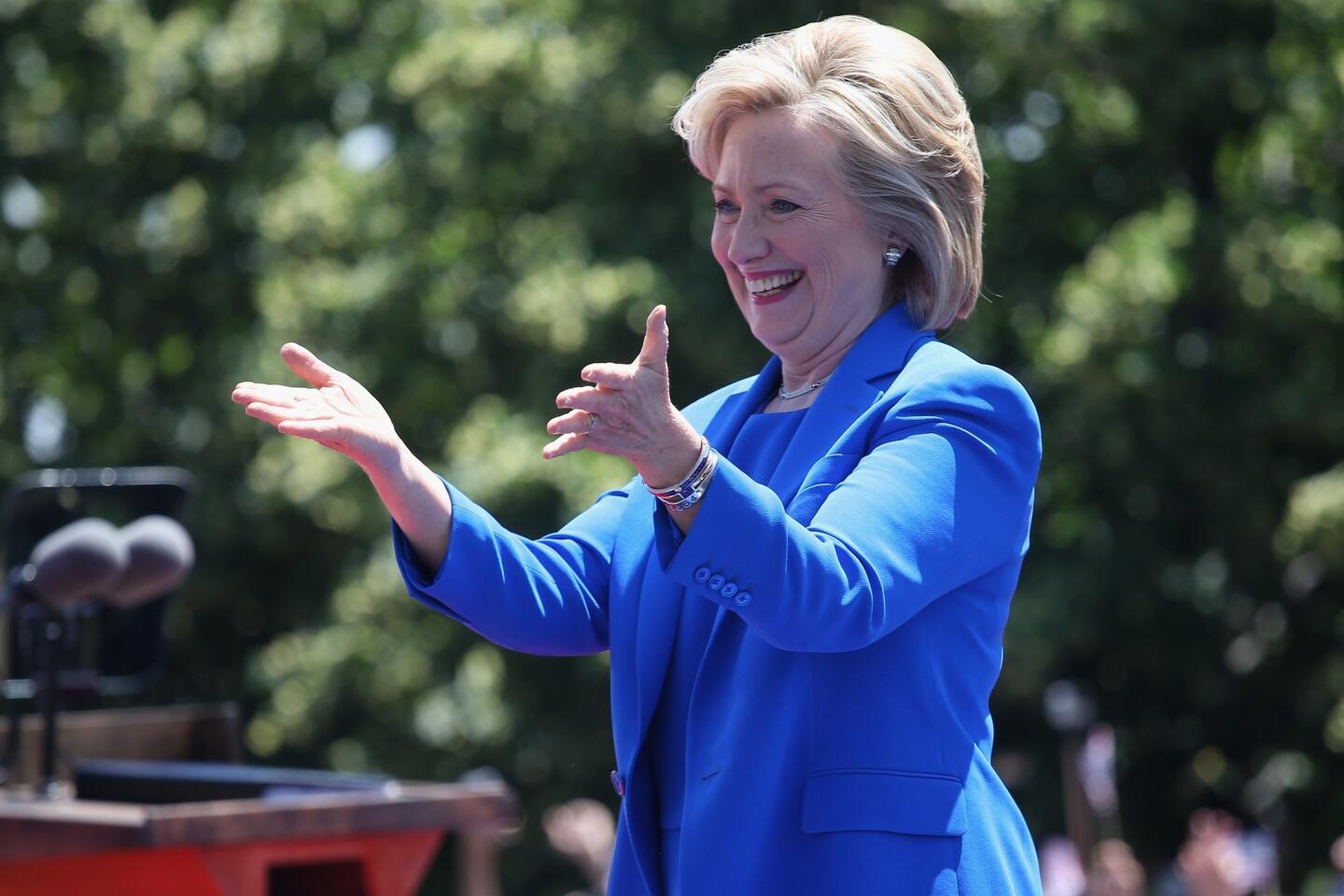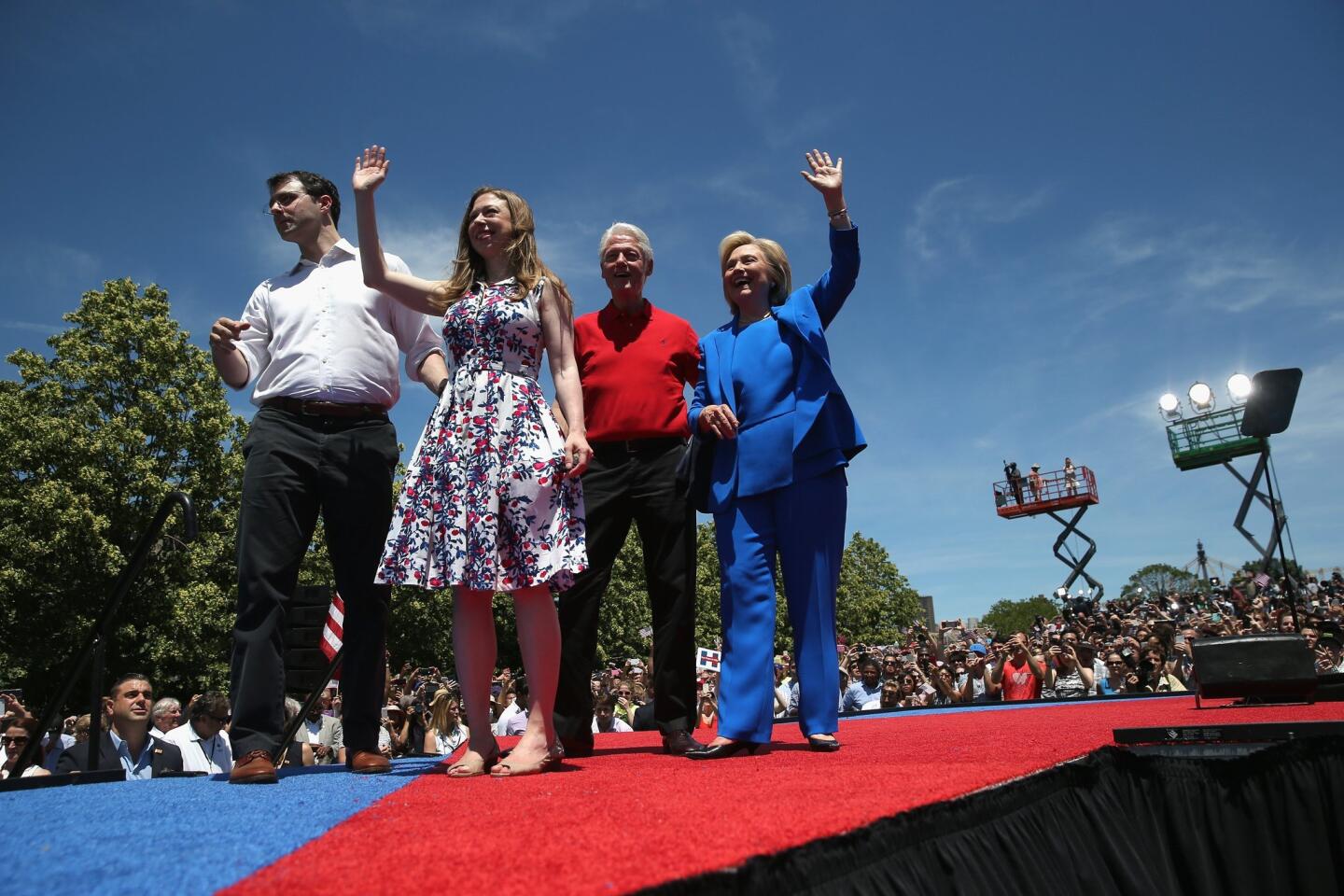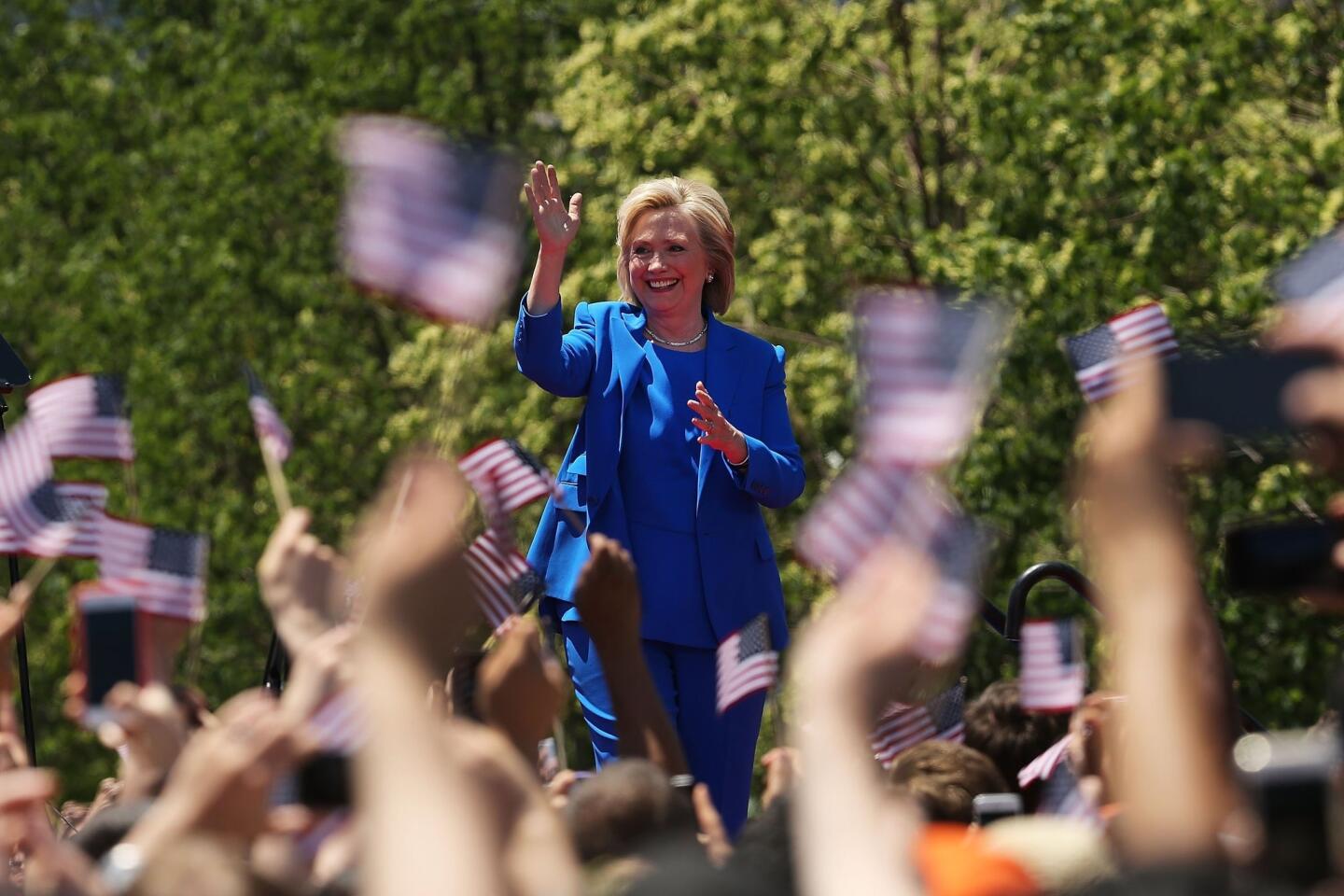Hillary Clinton portrays herself as a fighter at kickoff rally
Reporting from New York â Hillary Rodham Clinton cast herself as a fighter for Americans who have yet to share in the nationâs economic recovery, drawing inspiration from a Democratic icon as well as her own roots in public service Saturday as she launched a new phase of her second bid for the White House.
Speaking in a park dedicated to Franklin D. Roosevelt, on an island in New Yorkâs East River that offered sweeping views of the Manhattan skyline, Clinton said that FDRâs legacy had inspired both President Obamaâs and her husband Bill Clintonâs administrations, and generations of families, including her own.
Today, while the nation is âstanding againâ after the Great Recession, âwe all know weâre not yet running the way America should,â she said, blaming the problems on Republicansâ âtrickle-downâ approach.
Clinton sought to tap into the countryâs still-nagging economic anxieties and the rising populism within her own party, declaring that the âtime has comeâ for middle-class Americans who have wondered when their hard work would pay off.
âProsperity canât be just for CEOs and hedge fund managers. Democracy canât be just for billionaires and corporations,â she said. âYou brought our country back. Now itâs time, your time, to secure our gains and move ahead. And you know what? America canât succeed unless you succeed.â
The Republican âchoir,â she said, had some ânew voices,â but all of them were âsinging the same old song: a song called âYesterday.ââ
The line served both as an accusation that Republicans would return to the policies that Democrats blame for bringing about the financial crisis of 2008 and as a rejoinder to those in the GOP who have dubbed her a candidate of the past, seeking to run for a third Obama term.
On issues such as climate change, economic fairness, immigration and equal rights for gays and lesbians, Clinton said it was Republicans who were out of step with the public.
âFundamentally they reject what it takes to build an inclusive economy,â she said. âIt takes an inclusive society -- what I once called a village -- that has a place for everyone,â she said.
She also offered a personal qualification, drawing loud applause when she reminded the crowd that while she might not be the youngest candidate in the race, she would be âthe youngest woman president in the history of the United States.â
Clinton used the high-profile speech to highlight other biographical details her campaign advisors believe many Americans continue to be unfamiliar with.
Her vision of America was not one she learned from politics, she said, but from her family, specifically her late mother, Dorothy Rodham. Abandoned as a young child, her mother survived and was an example of the importance of perseverance and hard work in the face of adversity, Clinton said.
âMy mother taught me that everyone needs a chance and a champion. She knew what it was like not to have either one,â she said.
But, she added, her motherâs life story also was a lesson in how simple acts of kindness -- a teacher bringing in extra food for lunch after seeing she had none, or an employer giving her time to pursue her education -- could make a difference in othersâ lives.
âBecause some people believed in her, she believed in me,â she said.
Clinton did not shy away from those characteristics that Americans are far more familiar with, including her status as a longtime target of Republican attacks.
She vowed to seek partners in both parties to advance her vision, but emphasized her reputation for tenacity.
âIâll also stand my ground when I must,â she said. âIâve been called many things by many people. Quitter is not one of them.â
Republicans jabbed back. Clintonâs speech was âchock full of hypocritical attacks, partisan rhetoric and ideas from the past,â said Republican National Committee spokeswoman Allison Moore.
Clinton launched her candidacy with an online video in April, as she had done when she began her first campaign in 2007. But she never did then what she did Saturday: hold a formal public campaign rally in which she could offer a more expansive rationale for a second Clinton presidency.
Her new campaign team is largely composed of people who were not part of the last effort, but who have closely studied the mistakes that cost Clinton the nomination then, at a time when she was also the partyâs presumed front-runner.
Thatâs not to say her new campaign has completely avoided pitfalls. Sheâs drawn criticism for taking only a handful of questions from reporters at tightly managed events in early nominating states. Questions about donations to the Clinton Foundation and her use of a private email server while secretary of State also competed for attention in the first weeks after she first announced her candidacy.
While she remains the overwhelming favorite to win the Democratic nomination, enthusiasm for Vermont Sen. Bernie Sanders among progressive activists has illustrated the unease some of the partyâs core supporters have over her candidacy.
Advisors bristle at the notion that Saturdayâs rally was part of an effort to reboot the still-young campaign, but said it was the start of a new phase of the campaign where sheâll begin to offer more details on the kind of presidency she envisions. Aides say that in coming weeks, sheâll continue to hold small-scale events, but mix in more public rallies and weekly policy addresses.
Campaign officials said that Saturdayâs event was also a key moment in building the massive infrastructure needed to turn out Clinton supporters in the primaries and ultimately in the general election. The campaign says it is now organized in each of the nationâs 435 congressional districts, and Clinton will address her grass-roots team at a meeting in Iowa on Saturday night that will be simulcast at similar gatherings across the country.
The campaign also launched its text-messaging program, offering those who signed up a reply with the viral photo of Clinton screening her BlackBerry messages.
The Obama team excelled at building this type of infrastructure in 2008, a key to his success in amassing the delegates needed to defeat Clinton. Clinton campaign manager Robby Mook said Friday that this type of engagement is all the more important as voters tune out paid advertising on the ever-more-crowded airwaves, saying this election would be the âcycle of the activist.â
Follow @mikememoli on Twitter for more 2016 campaign news.
More to Read
Get the L.A. Times Politics newsletter
Deeply reported insights into legislation, politics and policy from Sacramento, Washington and beyond. In your inbox three times per week.
You may occasionally receive promotional content from the Los Angeles Times.
